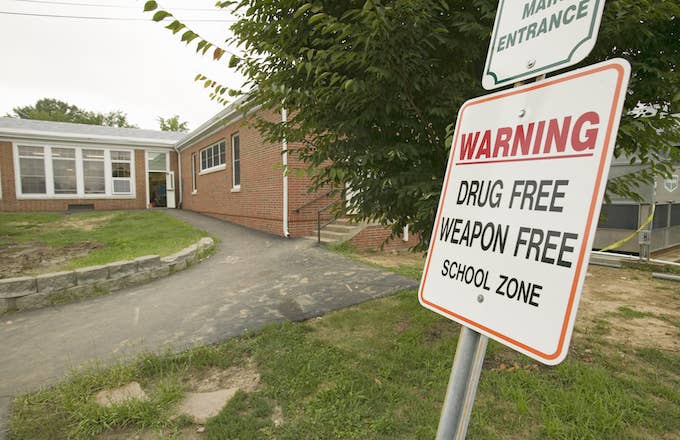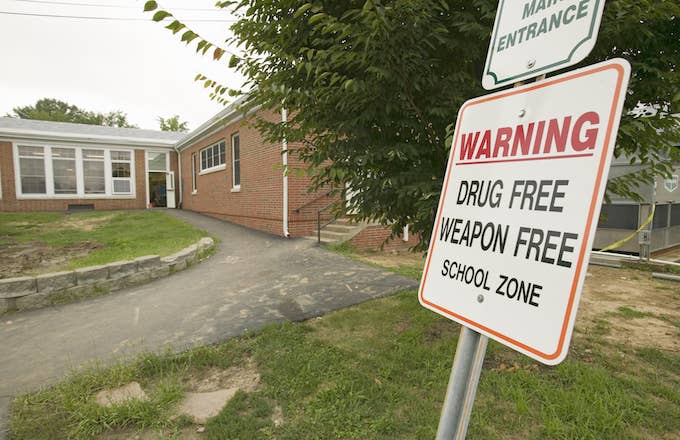
As more states legalize cannabis for both medical and recreational use, anti-drug education programs struggle to stay relevant. Particularly, Drug Abuse Resistance Education (D.A.R.E.)—a popular school program created in 1983 by the Los Angeles Police Department—isn't sure how to adapt to new, sensible drug policies across the United States.
According to The Washington Post, West Bridgewater, Massachusetts police officer Ken Thaxter recently needed to change his lesson plans after teaching drug prevention programs to elementary school students for the past 16 years.
Although marijuana will soon be available for purchase to anyone 21 years and older in dispensaries all over the state, the officer struggles to advise students against consuming the plant. For part of the lesson, he focuses on the short-term side effects of marijuana—such as difficulty concentrating, trouble problem-solving, and loss of motor skills—as well as addiction.
However, these lessons don't provide the full image of marijuana. Cannabis's many benefits include decreasing anxiety (which can help an anxious person concentrate), reversing carcinogenic effects of tobacco use, reducing seizures, blocking cancer cells from building, and more. It can even has the potential to treat opiate addictions.
Plus, time and time again, D.A.R.E.'s scare tactics have been deemed inadequate. Several studies have debunked the effectiveness of these curricula.
So, what prevents substance abuse among minors? Research shows that, actually, cannabis legalization curbs teenage drug use. In fact, a recent study has proven that teenage cannabis use drops when it's legalized.
However, there's still a lot we don't know about cannabis. Controlled research studies are difficult to perform, since cannabis is still classified as a schedule I drug by the Drug Enforcement Administration.
With the Trump administration in full swing, progress is unlikely to be made. Attorney Jeff Sessions is making sure the War on Drugs is renewed, despite the growing cannabis industry, which made $1.2 billion in January alone.

